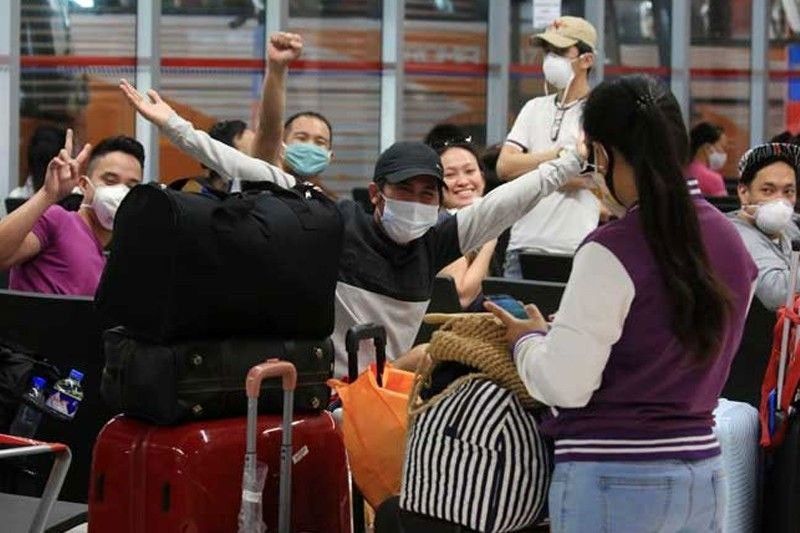Remittances sustain growth as expats help ease inflation's sting

MANILA, Philippines — Money sent home by Filipinos overseas inched up in September as they rushed to support their families weathering the impact of expensive consumer prices.
Remittances coursed through banks inched up 3.8% year-on-year to $2.84 billion in September, the Bangko Sentral ng Pilipinas reported Tuesday. This, however, was slower than 4.3% recorded in August.
Year-to-date, cash remittances amounted to $23.83 billion.
Remittances are considered the lifeblood of the consumption-dependent Philippine economy. Money sent home by overseas Filipinos augment their families’ income here.
These remittances are also crucial sources of dollars for the country. Remittances amounted to $31.42 billion last year, expanding 5.1% compared to the 2020 haul. The collections slightly missed the central bank’s forecast of 6% growth, but the BSP hopes remittances would rise this year.
That said, the surging dollar trend has left the peso sinking to new lows, which convinced many this will benefit families of overseas Filipinos. But that has not been the case as a strong dollar trend is only adding fuel to painfully high inflation that’s squeezing household budgets.
RELATED: Stubbornly high Philippine inflation dilutes benefits of a weak peso
Domini Velasquez, chief economist at China Banking Corp, attributed the growth in September remittances to three economic events.
“The increase in pace in the growth in cash remittances were likely driven by 3 factors: better economic outlook in some of the host countries such as the US, ASEAN, and the Middle East; high domestic inflation may compel overseas Filipinos to help out more in terms of sending money from abroad; and OFs may want to take advantage of a weak peso,” she said in a Viber message.
BSP data broken down showed 41.7% of cash remittances in the first nine months came from the United States, while the rest came from Singapore, Saudi Arabia, Japan, the United Kingdom, the United Arab Emirates, Canada, Qatar, Taiwan, and South Korea.
Remittance from land-based workers grew 4.1% year-on-year to $2.25 billion in September. Sea-based workers sent $590 million, inching up 2.4% on a yearly basis.
Velasquez cited that opportunities in remittance-rich countries such as the US and other parts of Asia, and the Middle East will offset the decline recorded in money sent by Filipinos based in Europe.
“The move towards full face-to-face classes in November will also bring in more remittances towards end of 2022,” Velasquez said, as expats send more money to their families to pay for tuition fees.
“Lastly, we might see more holiday remittances as Filipinos will likely celebrate with looser restrictions this year compared to last (e.g. physical company/school Christmas parties),” she added.
- Latest
- Trending




























